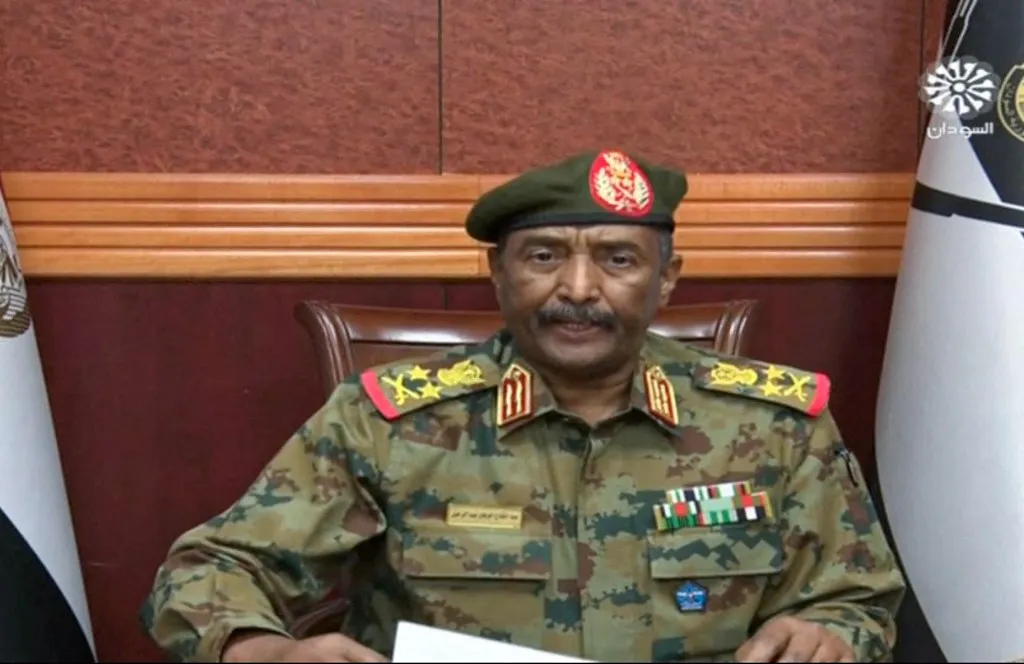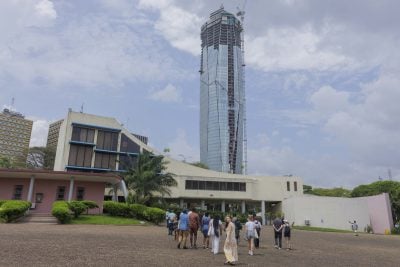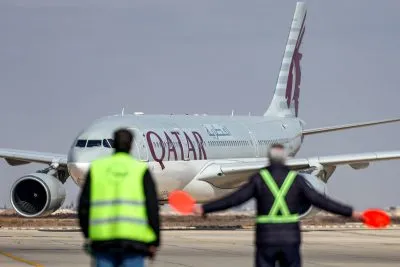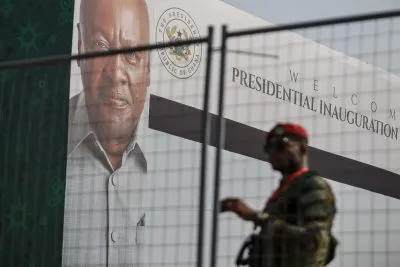Sudan’s ousted Prime Minister Abdalla Hamdok called for the reinstatement of his government on Monday, after it was dissolved in a military coup on October 25. Speaking from his home where he is being held by the new military regime under house arrest, Hamdok said that his resumption of executive powers could pave the way to resolving a growing political crisis.
The statement followed talks between Hamdok and UN special representative to Sudan Volker Perthes on Sunday in an effort to chart a path out of the crisis.
Following the meeting, Perthes said that national and international mediation efforts were underway to broker a power-sharing agreement to settle the impasse “within the next couple of days.”
“Many of the interlocutors we are speaking with in Khartoum, but also internationally and regionally, are expressing a strong desire that we move forward quickly to get out of the crisis and return to the steps of normalcy, to the steps of political transition, as we viewed it before 25 October, on the basis of the Constitutional Declaration,” he said.
Politicians involved in the mediation efforts say the main compromise on the table is a proposal for Hamdok to resume full executive powers and appoint a cabinet of technocrats, according to Reuters. Under the proposal, which is being presented and considered by all sides, the 14-member Sovereign Council would be replaced with a three-person honorary council, Reuters says.
Tens of thousands of people took to the streets on Saturday across ten Sudan cities in the largest pro-democracy protest since the coup. Responding to reports of lethal military crackdowns on protesters as they barricaded the streets of Khartoum, UN Secretary General Antonio Guterres urged military leaders to reverse the takeover and restore the constitutional order.

“Time to go back to the legitimate constitutional arrangements. Reports of violence are alarming and perpetrators must be brought to justice,” he tweeted on Sunday.
Reforms unravel
The World Bank has paused its economic support to Sudan and “stopped processing any new operations” in the country, David Malpass, the Bank’s President announced on 27 October.
The move came as military officers seized control of the government on 25 October, arresting key government officials and dissolving the government.
The latest events could derail hard-won economic gains as painful reforms and multilateral loans bring the country back into the global financial system after decades of isolation under former dictator Omar al-Bashir.
“Beyond development aid cuts, the military coup (even if reversed) profoundly impacts Sudan’s economy; recent growing investor and trade interest in Africa’s third largest country, just freed from sanctions, is now dashed and will have a short half-life until civilian-led rule restored,” says William Carter, Sudan country director at the Norwegian Refugee Council.
In June, the country concluded a 12 month IMF programme with a decision by the fund to provide comprehensive debt relief that will be vital in returning stability to the country at a crucial moment in its democratic transition, experts say.

“I am greatly concerned by recent events and their negative impact on the country’s social and economic development,” Malpass said.
“Sudan was embarking on an ambitious package of economic reforms, which paved the way for the country’s arrears clearance as it became eligible for debt relief under the HIPC initiative.”
At a Paris summit in May, Sudan cleared the final hurdle to securing much-needed relief through the IMF-World Bank Highly Indebted Poor Countries (HIPC) initiative, as IMF member countries pledged $1.4bn bridge loans to clear Khartoum’s arrears to the fund.
The US also froze $700m in emergency assistance on 25 October as news of the military takeover broke.
The economic support, earmarked last year to aid Sudan’s democratic transition, would be put on hold, State Department spokesperson Ned Price told reporters. None of the funding has so far been released to the government of Sudan.
The aid cuts, which include $2bn earmarked for Sudan’s recovery from the World Bank, are “painful,” says Patrick Heinisch, an economic researcher at German-based commercial bank Helaba.
“Grants were expected to provide almost one-third of revenue in 2021/2022. Can Gulf allies compensate the shortfall? [It] would be ironic. They were not among the top transition financiers so far.”
At a foreign donor conference in Berlin in June, nations pledged $1.8bn to rebuild the Sudan’s economy. The biggest benefactors were the European Union, who pledged pledged $350.13m, and the US $356.2m. Saudi Arabia promised $10m and the United Arab Emirates $50m.
Sudan’s coup leader. General Abdel Fatah al-Burhan met with Saudi Arabia’s ambassador to Khartoum, Ali Bin Hasan Jaafar, in the capital on Wednesday for crisis talks, the country’s armed forces Facebook page said.
The latest coup derails efforts by Sudan’s military-civilian coalition government to turn the economy around after decades of isolation from global markets.
The country’s removal from the US state sponsors of terrorism list in December set in motion the country’s reintegration into the global economy after the ousting of then- president Bashir in a 2019 popular uprising. But the country is still contending with $60bn in foreign debt.
Want to continue reading? Subscribe today.
You've read all your free articles for this month! Subscribe now to enjoy full access to our content.
Digital Monthly
£8.00 / month
Receive full unlimited access to our articles, opinions, podcasts and more.
Digital Yearly
£70.00 / year
Our best value offer - save £26 and gain access to all of our digital content for an entire year!
 Sign in with Google
Sign in with Google 



